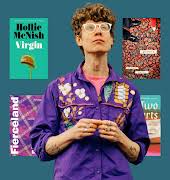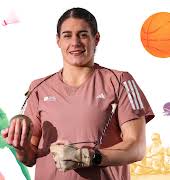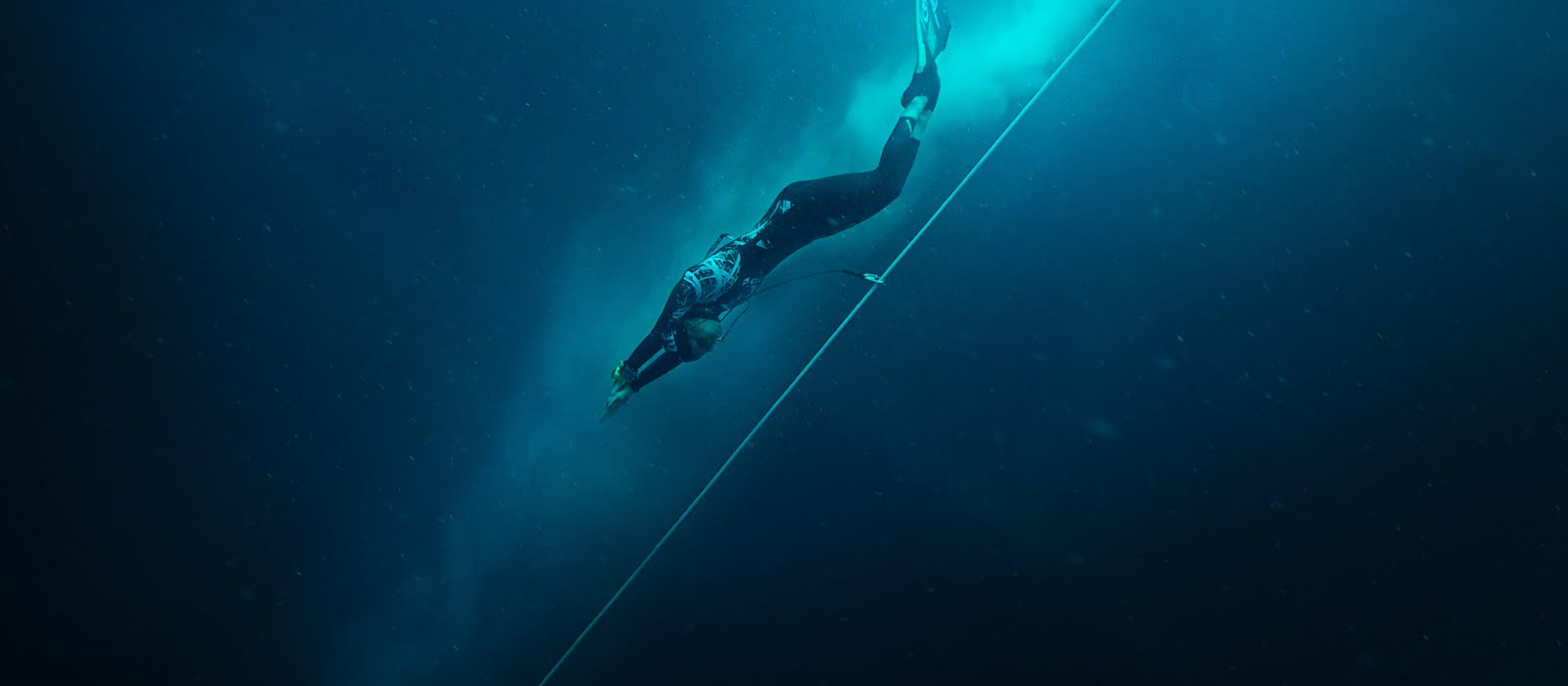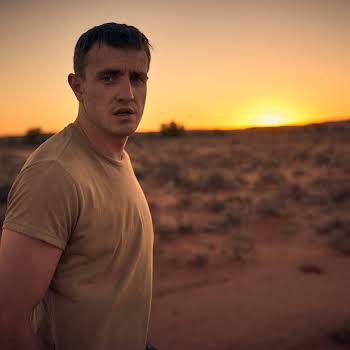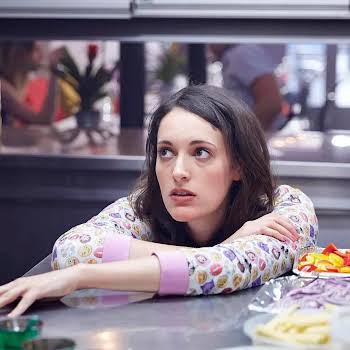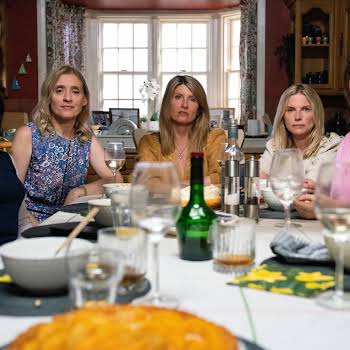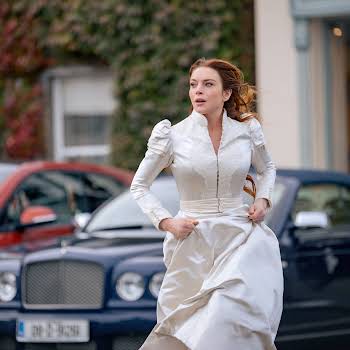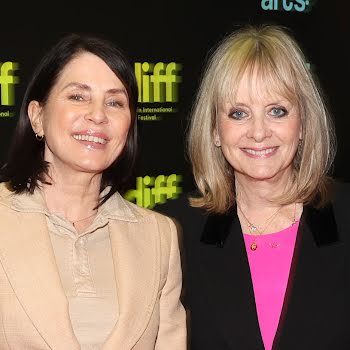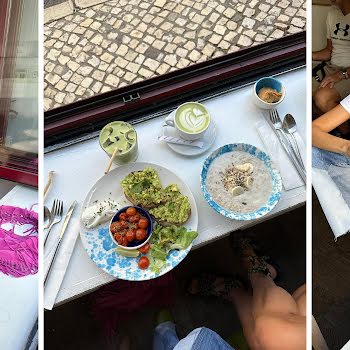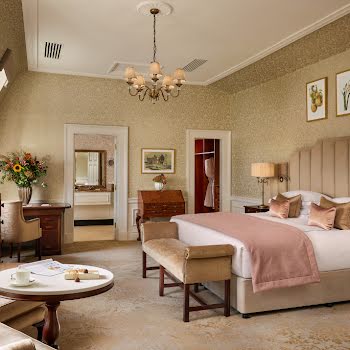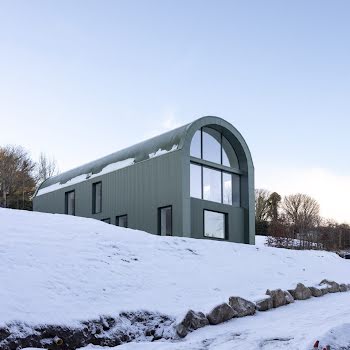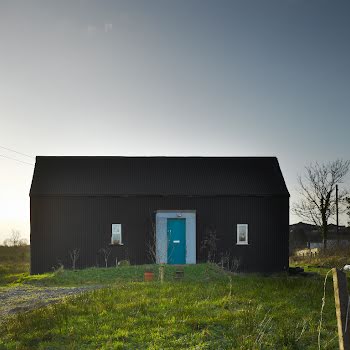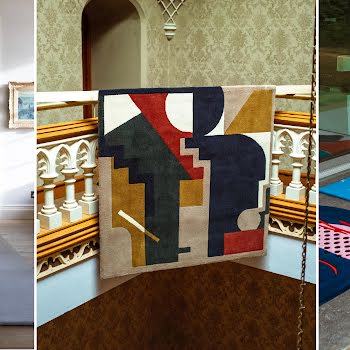The Deepest Breath. Alessia Zecchini in The Deepest Breath. Cr. Netflix © 2023
Five minutes with ‘The Deepest Breath’ director Laura McGann
Directed by Irish filmmaker Laura McGann, The Deepest Breath tells the story of champion freediver Alessia Zecchini and expert safety diver, Stephen Keenan.
With raw talent before she was even old enough to legally compete, Alessia Zecchini was always destined for greatness. Originally from Rome, she first discovered her love for freediving at the age of 13 and it wasn’t long before she was achieving incredible feats.
Over in Ireland, Irish adventurer turned expert safety diver Stephen Keenan, shared that same affinity with the sea. Setting out on a quest to find himself, he traveled across Africa before arriving in Dahab, Egypt where he established his own dive school.
Despite their very different paths, the two would meet at the pinnacle of the competitive freediving world, discovering a mutual passion for pushing their limits and forming a powerful relationship that felt like fate.

In The Deepest Breath, Irish director Laura McGann explores just what it takes to make it at one of the most dangerous sports in the world, using everything from raw underwater dive footage to childhood home movies to chronicle Zecchini and Keenan’s lives and careers.
A compelling documentary with stunning visuals, this is a story that will stay with you long after the credits have stopped rolling. I sat down with Irish director Laura McGann to find out more about her incredible new film.
Freediving is quite a niche topic… what made you want to make a film about it? Is it something you were into yourself personally?
Not at all. I didn’t know anything about freediving. I read an article about Stephen and Alessia and I Googled, ‘What is freediving?’ I was initially really taken by seeing people underwater for what felt like eternity, without the urge to breathe. That kept me going for a few hours one evening, but really it was after that when I learned more about Stephen and Alessia, the lives they had led up to then, and what they were part of that the idea started to come together. There was a really uplifting kind of adventurous, competitive, passionate part of the story that just really struck me. That curiosity and passion for life that these people had – the places they were living and the way they were carving out a kind of unconventional life for themselves, that struck me as being brave, and inspirational. Especially the fact that both Stephen and Alessia had had that from quite a young age.
At its core, the documentary is really about taking risks and as you mentioned there, living your life in a different way. Did learning more about Stephen and Alessia’s stories change your own way of thinking?
I’ve always kind of been aware of the fact that we’re just passing through and it struck me that both Alessia, but particularly Stephen, had that same kind of attitude. I liked that. I try to be in the present as much as possible and really reflect on how I want to live my life and question things.
Without giving too much away, you came to this story after it had already happened… was the end result what you expected or did the documentary become something else entirely along the way?
I always used to think that you have an idea to make one film, you shoot a different film, and you cut a different film, whereas that just did not happen with this. We set out to make this film, we shot this film, and we cut this film. What we aimed to do, we were so ambitious with it. It was a bit of a long shot – to be able to tell this story in the moment, to have Stephen tell his own story and to find the archive of each of these moments. It was kind of a long shot that we would be able to do what we tried to do but, one of our producers, Sarah, went back recently and read the initial treatment and it was ultimately what this film is now.

So much of this film is based on archival footage, was it difficult to access that or were people very forthcoming with what they had?
People were so open, the community really wanted this story to be told. Stephen had saved so many people’s lives, people just wanted to do whatever they could to help make this happen. And Alessia is such a beloved member of the freediving community – people are just so fond of her and so proud of the safety that Stephen did that people were very forthcoming. Saying that, we had two years of archive researchers and producers working to find every last piece of footage, photos, audio or whatever and it helped that a lot of that prep took place during the pandemic. People were at home during lockdown, so they had time to go up into their attic and root around. Sometimes all we had was one photo but in the background we could see that there was someone else holding a camera, so we’d find out they were and get in touch. Because of the pandemic, they had the time to root through hard drives so we definitely got a lot more than perhaps we would have had that not been the case. Also having the time to really leave no stone unturned was hugely helpful, you know we were still getting archive in weeks before we finished the film. It was a massive, massive effort.
It was right down to the wire by the sounds of it! So far, the response has been overwhelmingly positive. What does that feel like? That must be amazing for you as a filmmaker…
Well, it’s certainly amazing as a filmmaker and it’s also amazing, just because I know how much the people in this film gave to making it happen – how they put themselves out there. The fact that they’re seeing all these positive responses, it means an awful lot to me because you know, I am the person who asked them to be part of this film. So to see it and them getting a positive response, it means a lot to me. you know, they’re getting a positive response. It means a lot to me.

I’m sure it was quite difficult making this film at times. I’ve seen on social media that a lot of people found the scene where Alessia’s father speaks about Stephen very moving. Did you carry that emotion with you when filming ended?
Oh my god, that scene with Enzo, I just remember the breath that I took when I was sitting in that room and he said those words – ‘I would give my life for him.’ I just got goosebumps all over my body. It was just a really, really touching moment. Peter and Enzo had never been in touch before so I asked Enzo, if he could talk to Peter now, what would he say to him? And Enzo said that he would give his life for Steven. It was a particularly poignant moment and it meant an awful lot for Peter to hear that.
If there was one thing that you wanted people to take away from this documentary, what would you say that is?
I’d say follow your passion, follow your goals, and you know, question things. If there’s something that you’ve always wanted to do, maybe give it a go, you know.
You live along the coast in Co Wicklow, what is your relationship with the sea like?
It just settles me.
It’s such a calming force, even though it can obviously be quite disruptive too, as this film has shown…
It is such a calming force. It has to be respected, it’s such a massive element but it’s also really embracing. I think people who are an in the sea really feel the benefits from it and you get it. I hope that this film captures that.

People might be surprised to learn that Alessia is still freediving. Did she give you any insight into what keeps her going?
In the film, she talks about how when she goes diving again, that’s when she feels most connected to Stephen. It gives her that sense of calm. She’s recently gone to 123 metres so she’s added 19 metres to her record in the film. She’s amazing.
What an achievement! Finally, what’s next in the pipeline for you? I’m sure you can’t give too much away…
No, I can’t give too much away but there are a couple of projects that I’m looking at at the moment and they’re just as ambitious. I’m definitely really excited about them, they’re challenges – they also all feature the elements in some shape or form. So, yeah I’m looking forward to kind of coming back up into my attic again and starting again.
The Deepest Breath is available to watch on Netflix globally now. Imagery courtesy of Netflix.


